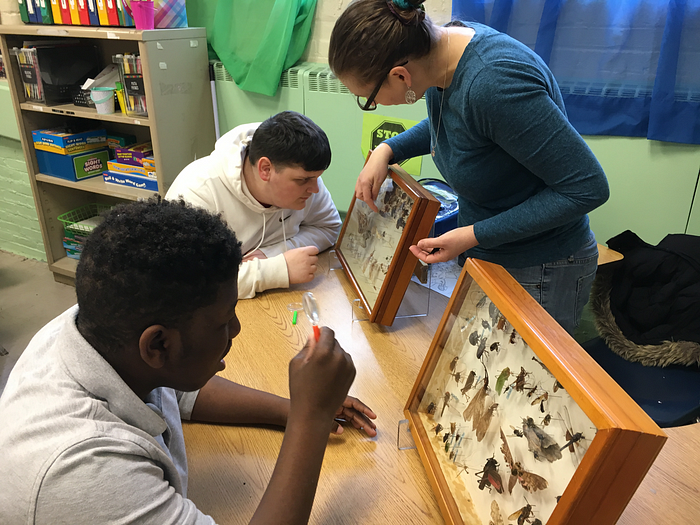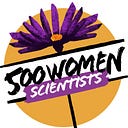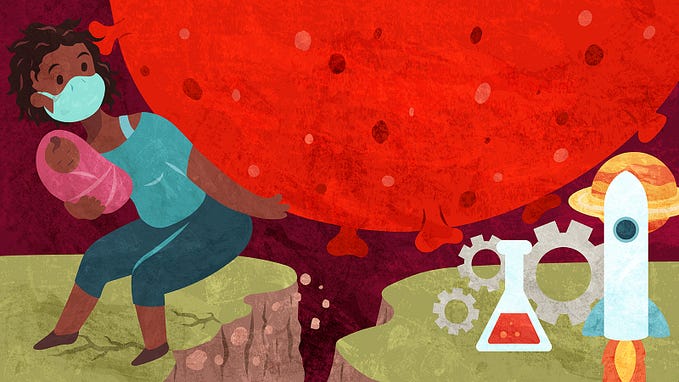Pods — Connecting women and gender minorities across the world
It all started with a spreadsheet. Or more precisely, the idea for Pods, or local 500 Women Scientists chapters, took flight from a spreadsheet we used to organize thousands of women scientists across the world to march together in the 2017 Women’s March.
In the early 500 Women Scientists days, a small group of women scientists were hustling to harness the momentum from our open letter, recognizing the deep need for connection and community after the 2016 US Presidential Election. While organizing for the Women’s March, we created a spreadsheet of women who who wanted to march together in their cities. We shared it widely so more people could join. This spreadsheet was the foundation for our now global network of Pods!

The first official pod was started by Angie Pendergrass in Boulder, CO USA. She emailed 14 other women scientists she already knew in Boulder with an offer to have an in-person pod launch party, also asking for volunteers to coordinate things. Angie also suggested that other groups who marched together should meet in person after the march. Washington DC, Fort Collins CO, and Austin TX quickly followed and the network of Pods was off to a strong start.
Connection was key
The main idea for Pods was simple. We told Pods to figure out what they wanted to focus on and go for it. The implementation was not nearly as simple. Pods are created and run by volunteers. They are labors of love, places to connect in person or virtually, and a community to take action with. Pods are the foundation of our organization, our roots in the ground.

As the network of pods quickly grew in those early months of 2017, we felt like we were building the plane as it was flying at warp speed. With no blueprint, we had to create a simple way for people to find and join their pods, as well as create resources for Pod operations, fundraising, communications, and community outreach. And while we started in the US, we quickly realized our message and the deep need for connection resonated beyond our borders. People were starting pods all over the world!
In the first year, 131 Pods formed and we have grown slowly but steadily since then, adding about 100 Pods each year until 2020. Despite the global pandemic and a truly challenging year around the world, 2020 saw the highest Pod growth, ending the year at more than 500 Pods across the globe. Our Pod network now has over 14,000 women and gender minorities in 100 countries!

We became victims of our own success; Pods grew much more quickly than our capacity to organize hundreds of chapters and thousands of people all over the world. Each Pod was unique, with its own sets of opportunities and challenges. Some Pods have lots of active members and have been going strong for many years. Other Pods had serious challenges, sometimes stemming from geographical isolation or lack of clear leadership, and many pods have been started and retired in the past 4 years. The Pods Team, a subset of volunteers on the 500 Women Scientists Leadership Team, has worked hard to provide support, inspiration, and organization. We developed SOPs and resources, created a regional network and a Pods mentorship program, and began sharing our accomplishments via Slack, global monthly meetings, and a newsletter.

Despite some challenges, Pods have accomplished some truly amazing things over these past four years. Most of the initiatives Pods have carried out, like the #GetOutTheVote and #OurEPA campaigns were catalyzed by a single Pod and spread through the network, ultimately engaging hundreds of members. Pods have hosted film screenings of “My Love Affair with the Brain” and “Picture a Scientist”, storytelling events like the Science Salons for Puerto Rico after hurricanes Irma and María. They have organized op-ed writing campaigns, hosted Wikipedia edit-a-thons, science trivia events, and policy trainings. Pod members have used their voices to advocate for change in their communities, marched together, and spent hundreds, if not thousands, of hours sitting at tables and talking to their local communities and representatives about science, inspiring the next generation of scientists.

Ultimately, we believe growing a grassroots movement for equity and justice is about personal connection. From the beginning, the Pods were a place for women scientists to come together in person, support each other, and organize community events and advocacy. And we want to make those connections as easy as possible. Hence we built a platform to make it easy to find a pod, sign up, and connect with fellow women and gender minority scientists.
Meet Orca

The Orca platform is here to make it easier to find and connect with folks in your town, for pod coordinators to manage their Pods, for Pods to connect with others across the world, and for members to easily communicate with each other.
What’s next for Orca and Pods?
With the growth of the Pods network and its expansive geographic representation, we recognize a need for greater ambition. We have big goals for Orca in 2021 and beyond — we aim to build more functionality, like enhanced communication features within Orca, provide resources for Pods and Pod coordinators, and more holistically integrate Pods with other 500 Women Scientists projects, such as Wikipedia Edit-A-Thons, Gage, and Fellowship for the Future.
So welcome to Orca, a great place to find your #ScienceSquad. Use this new platform to find and join a pod and connect with thousands of women and gender minority scientists across the world!
Written by Tanya Dapkey and Jane Zelikova








